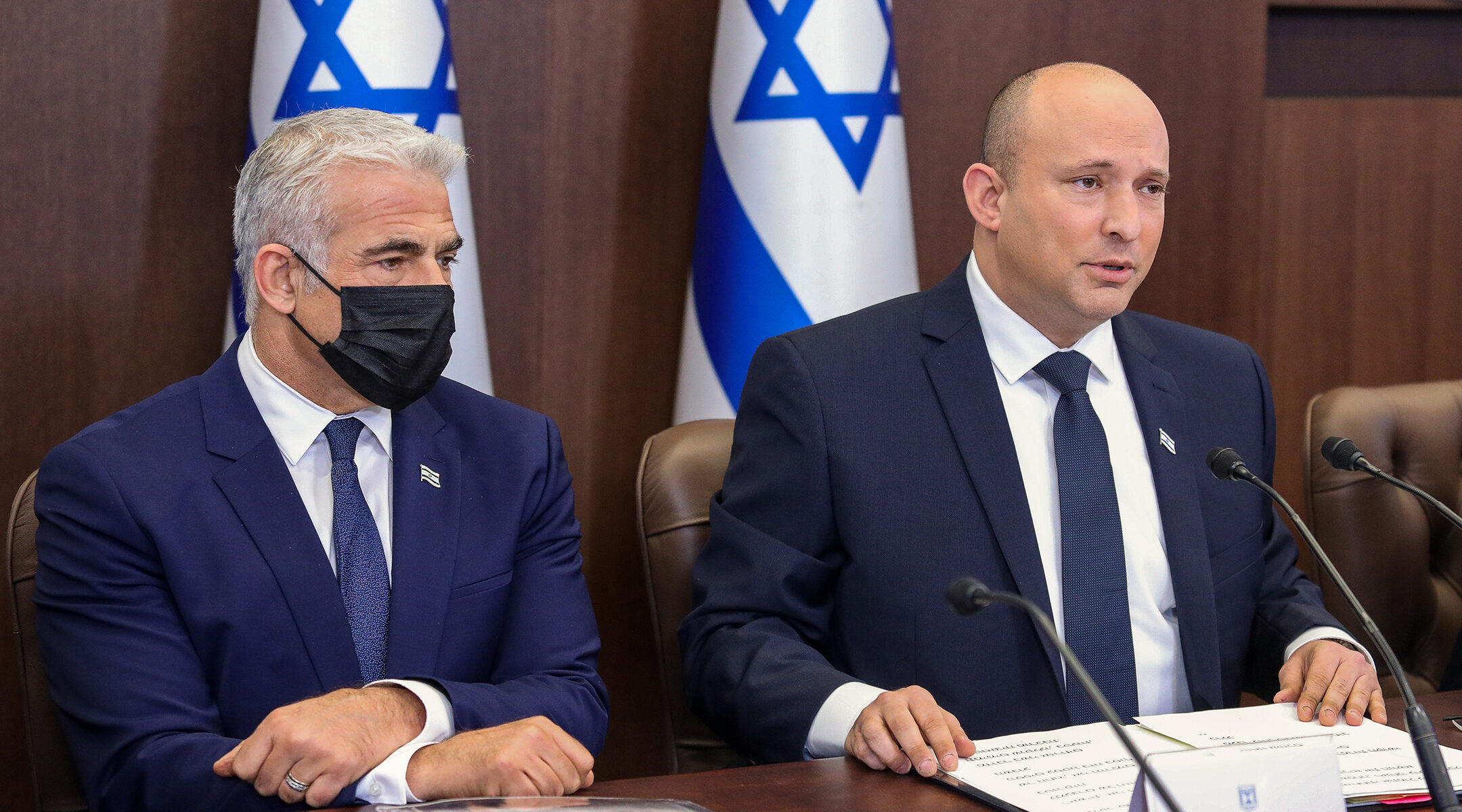(JTA) — Israel will back a United Nations resolution condemning Russia’s invasion of Ukraine, days after declining to support a similar one put forward for a vote in the Security Council by the United States and Western allies.
With close ties to both countries, Israel has found itself firmly in the center of the web of diplomatic negotiations taking place around Russia’s bloody invasion of Ukraine that it launched last week.
Yair Lapid, who is currently Israel’s foreign minister but slated to rotate into the prime ministership next year, has pushed for sharp condemnation of Russia, while Prime Minister Naftali Bennett has been more hesitant.
RELATED: Why Israel is having trouble picking sides in Russia’s war on Ukraine
On Friday, Israeli officials said they demurred from supporting the Security Council resolution because it was obvious that Russia, a member of the Security Council, would veto it.
Lapid said Monday that the country would back the new resolution in the U.N.’s General Assembly, a much larger body with nearly 200 members whose size means a few individual objectors cannot tank widely supported measures.
“Israel was and is on the right side of history,” Lapid said in a statement. “We have a moral duty and historical obligation to be part of the effort.”
The announcement came as Israel announced the first death of an Israeli in Ukraine and as the country prepared to send supplies to the country. Lapid said Israel is sending warm clothes, medical equipment and water purification equipment to Ukraine — after Bennett, on a call Sunday with Vladimir Putin, reassured the Russian president that no military equipment of any kind will be on the Israeli planes.
In his statement, Lapid also said that the United States understands Israel’s diplomatic predicament, given Russia’s large military presence in Syria, a neighbor that has historically been one of Israel’s main enemies.
What else is happening in Israel involving the Ukraine war
A summit, but not in Israel: The first meetings between Ukrainian and Russian delegations took place in Belarus on Monday as Russian troops continued to bombard Kyiv. Last week, there was a chance that the pivotal meeting could have taken place in Israel.
On a phone call with Bennett on Friday, Ukrainian President Volodymyr Zelensky, who is Jewish, asked if Israel would offer to mediate and help broker a ceasefire.
While Bennett rejected Zelensky’s plea for military supplies on the same call — underscoring that in comparison to Western powers that have sent weapons to Ukraine, Israel is far more resistant to any high-level involvement in the conflict — the Israeli prime minister agreed to bring the idea of talks in Israel to Putin.
In his Sunday call with Bennett, Putin rejected the idea — for now — by noting that a Russian delegation was already situated in Gomel, Belarus, a country led by another authoritarian ruler, Alexander Lukashenko, who is said to be Putin’s closest ally.
The idea of a Ukraine-Russia summit isn’t entirely new — Bennett proposed one last fall, too.
Increased immigration expected: A first group of Ukrainian Jewish immigrants planning to make it to Israel crossed the border this weekend into Poland, where they will hope to catch an Israel-bound flight this week, Haaretz reported. The group of around 100 is a tiny fraction of the thousands who are requesting help to get to Israel; the Jerusalem Post reported that Israeli officials are preparing for as many as 10,000.
Assistance to refugees from Arab nations: Israel is not only helping citizens of ally countries escape the violence — the first group of immigrants receiving Israeli help includes Lebanese, Egyptian and Syrian nationals. Israel does not have relations with either country. The gesture was spotlighted by many on social media, including Jewish U.S. House Rep. Dean Phillips, a Democrat from Minnesota.
Yad Vashem challenges Putin’s rhetoric: Yad Vashem, Israel’s museum, archive and historical authority on the Holocaust, slammed Putin’s continued “denazification” rhetoric in his justifications for invading Ukraine.
“Yad Vashem condemns this trivialization and distortion of the historical facts of the Holocaust,” Yad Vashem Chairman Dani Dayan wrote. “Yad Vashem deplores the Russian invasion of Ukraine, which will inevitably lead to dire consequences. We fear in particular for the wellbeing of innocent civilians and deplore any deliberate endangerment of their safety.”
The comments are notable given Yad Vashem’s reported urging of the United States not to place sanctions on Roman Abramovich, a Putin ally who is one of its biggest donors.
Israel confirms casualties: Israel’s Foreign Ministry confirmed the death Monday of one Israeli, a 37-year-old man shot after getting into an altercation with Ukrainian forces while trying to flee the country, the Jerusalem Post reported. Another Israeli-Ukrainian was taken captive by Russian forces after they seized the Ukrainian cargo ship where he worked.
JTA has documented Jewish history in real-time for over a century. Keep our journalism strong by joining us in supporting independent, award-winning reporting.






